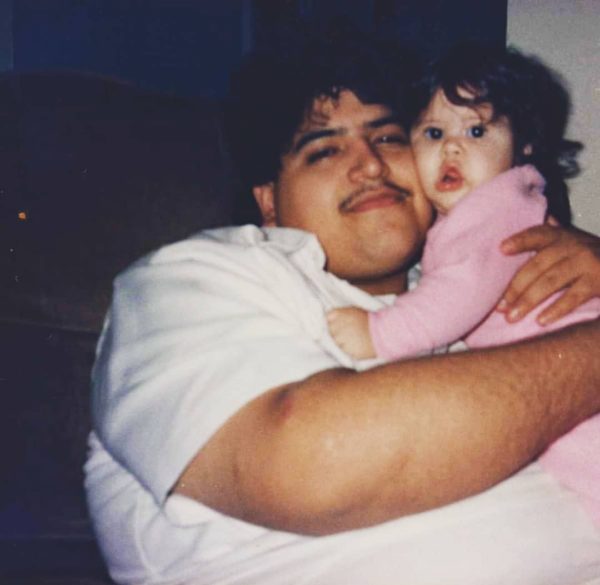
Motherhood—and mothers’ voices—should be celebrated every day. But that also means having conversations about the complexities of parenting. In our weekly series, “Millennial Moms,” writers discuss the simultaneously beautiful and daunting responsibilities of motherhood through the lens of their millennial experiences. Here, we’ll be discussing things like burnout from the several side hustles we work to provide for our kids and pay our student loans, dating app struggles as young single moms, rude comments from other parents at daycare, and so much more. Stop by every week for a judgment-free space on the internet where women can share the less rosy aspects of motherhood.
I was more prepared than most when I was diagnosed with fibromyalgia. Sure, I was nervous and scared, but I knew what to expect. My dad had the condition as well—diagnosed in his late 30s when I was a preteen. Because of this, I knew just how harsh the transition from able-bodied to disabled could be.
A haunting moment stands out in my memory; the point when I realized something was seriously wrong with my dad. We were on the second floor of our apartment complex when it happened. My dad suddenly fell down the stairs; toppling down two floors of concrete and finally coming to a stop on the stone landing. My sister and I—the only people with him—immediately went into disaster mode.
We panicked, screamed, and cried—begging for someone to come help our dad. In turn, he tried to hush us; reassuring us that he was fine. Feeling somewhat annoyed and completely betrayed by his body, my dad struggled to stand up. We pulled at his arms and pushed him forward until we were able to get him upright. Getting him back up the stairs was an additional struggle, and he was left beat up by the accident.
That was the first time I realized my dad was sick. Of course, I knew factually that he had a condition, but I didn’t register what that meant. Sure, he would come home struggling to walk sometimes, but he would still envelop me in his wide chest with his strong arms. He was still the person I went to first with a problem or a triumph. My dad was no different than he was before his fibromyalgia diagnosis.
Samantha Chavarria, HelloGiggles
When I viewed him through the lens of his disability, I learned that he didn’t want to be seen as different. He didn’t want to be pitied. He only wanted to be understood and empathized with. This is how I felt when I received my own fibro diagnosis. I didn’t want to be “othered.” I only wanted to be treated kindly on this hard journey.
Kindness, I have found, can be effortless. We’re often taught that a nice deed or a kind word hides an ulterior motive, and that nothing is free. But being suspicious of every good thing that comes your way is a very cynical way to live—especially when kindness can actually be given freely.
Watching my dad’s struggle—one that wasn’t always obvious but still altogether real—made me more aware of other people’s hidden battles. Because of him, I understood that, in those situations, a little bit of empathy goes a long way. Kind words, understanding gestures, and promises of better days to come actually mean so much more than what they cost us to offer.
I’m the first to admit that I’m stubborn and quick to anger, but the goal of kindness has helped me to grow past these negative instincts. When I became an adult, “Be Kind” became the first rule of my household. I learned, when applied liberally, that empathy and kindness can be the best medicine. Later, when I became a parent, I was determined to teach this fact to my kids before the world convinced them otherwise.
It starts with tons of positive reinforcement, like reminding your child how good, smart, and wonderful they are. Validation can come in so many forms, but as long as you are showing them approval and love through kindness, then your child will learn to do the same.
Keeping an open and ongoing dialogue is the next step. This is sometimes easier said than done. It requires you to see your kids as people rather than as extensions of yourself. It means allowing them to speak their minds, whether you like what they have to say or not. Showing them that their words have value also teaches them that the weight of their words should be used responsibly. The natural progression will be for your kids to connect those two concepts, and use their words empathically towards others. And they will, because you have shown them how good it feels to experience kindness.
Don’t get me wrong, kids are kids. My children still fight with each other over silly little things. They still fuss when doing their chores and whine when they don’t get their way. But I know my kids have the necessary foundation to be kind people, and our world needs all the kind people it can get.
